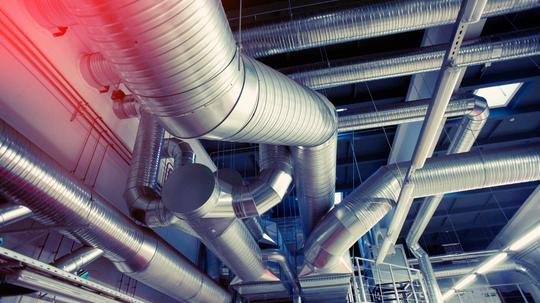
The great "reopening" is underway. Massachusetts now allows for indoor dining at restaurants, the use of indoor office spaces and even visiting gyms and movie theaters—albeit at a significantly reduced capacity.
These measures are meant to allow businesses to regain some of the revenue they've lost over the last several months now that the state's Covid-19 caseload has dropped; just 177 new cases were reported Friday. Yet, as a consortium of more than 200 experts warned in an open letter to the World Health Organization this week, indoor activities still come with risks. Near the top of their list of concerns is poor ventilation in indoor spaces, which has likely led to super-spreading events reported in meatpacking plants, churches and restaurants.
Boston-based startup dataArrows may have one solution.
The startup, which was incorporated in 2019 and released its software in January of this year, has developed an AI-powered platform that keeps track of indoor air quality data, occupants’ preferences, building as-built information and outdoor climate data.
With that information, the platform, called TWINUP, detects and predicts unsafe air quality that might contribute to the spread of SARS-CoV-2, the novel coronavirus.
"We started working on an AI-based solution that collects occupants' comfort levels and, based on those things, provides insight for managers to run heating, cooling and air conditioning systems," said Issa Ramaji, who developed the technology with his co-founder Ehsan Mostavi when they were in the same Ph.D. program at Penn State. "Once Covid-19 happened, we realized the need to consider additional factors in running HVAC systems. That's something that contributes to the spread of the virus."
dataArrows' platform creates real-time "digital twins" of buildings in a 3D environment to analyze data and make recommendations. In addition to using AI to make the environment safer, the platform is also designed to reduce energy consumption.
When BostInno spoke with Ramaji in May, dataArrows had two clients: Roger Williams University in Rhode Island, where Ramaji works as an assistant professor of construction management, and a dental office in New York.
The five-person team is completely bootstrapped at the moment. dataArrows was a semifinalist in this year's Rhode Island Business Competition.
Ramaji thinks that his startup will likely attract all kinds of commercial customers as office buildings, universities, convention centers and more think through the risks involved in reopening.
"Factors like relative humidity and temperature can contribute to the distance the virus could travel or stay in the air," Ramaji said. "We are now considering those factors."








